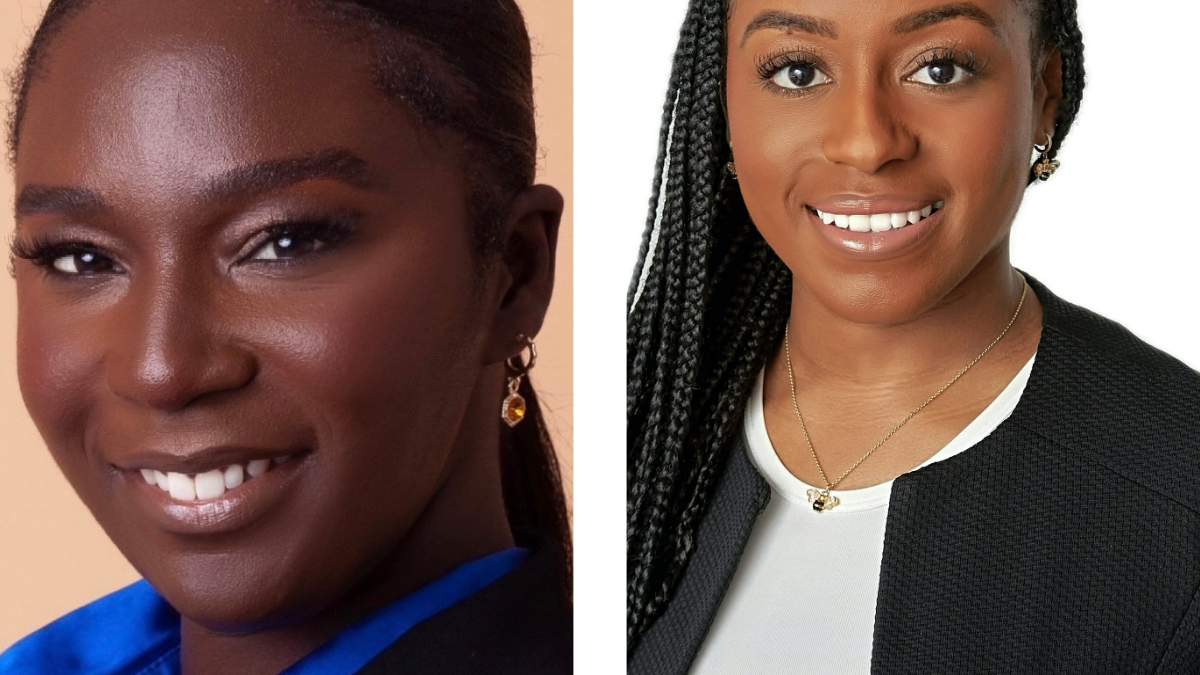
Commercial Awareness Update – W/C 3rd March 2025
March 3, 2025
Embracing Ramadan in the Legal Profession: Navigating Faith and Law
March 3, 2025By Christianah Omobosola Babajide.
Reading time: eight minutes
This International Women’s Day, we celebrate the trailblazing women who are breaking barriers and redefining the legal profession. One such force of change is Karen Safo-Barnieh Olutogun (KSBO)—a British-Ghanaian barrister, human rights activist, and advocate for systemic reform in law.
From her award-winning legal career to her grassroots activism, Karen is challenging exclusionary structures, empowering women to advocate for themselves, and reshaping access to justice. Whether through her campaign, Keeping the Receipts, or her cycling community, Black Women on Wheels (BWOW), Karen is proving that representation and inclusion must be more than just words—they must be action.
In this exclusive interview with our Editor Christianah Babajide, Karen shares her journey, the systemic challenges she’s fighting to dismantle, and why true diversity means breaking down barriers, not just opening doors.
COB: Your passion for diversity and inclusion is incredibly inspiring. Was there a particular experience that sparked this passion for you?
KSBO: For me, diversity and inclusion isn’t just an abstract concept—it’s personal. Growing up as a British-Ghanaian, I constantly saw the disconnect between talent and opportunity, whether it was young girls in Ghana who were brilliant but lacked access to education or Black professionals in the UK who worked twice as hard but struggled to get the same recognition. I realised early on that the system doesn’t just exclude people based on skill or ambition—there are structural barriers designed to keep certain people out.
That understanding deepened when I pursued a career at the Bar. The legal profession has an inclusion problem—but it also has an access problem. I saw brilliant law students go through the rigorous process of being called to the Bar, only to be left in legal limbo—qualified but unable to practice. The numbers speak for themselves: over 58,000 unregistered barristers in England and Wales, compared to just 17,400 practising ones. That’s a crisis of potential not utilised.
That’s why I founded Keeping the Receipts, a campaign to give people the tools to advocate for themselves—whether it’s knowing your rights at work, defending yourself against discrimination, or navigating a profession that wasn’t built for you.
And that’s also why I’m working to amplify the Legal Limbo crisis, because access to justice starts with access to opportunity. For me, diversity isn’t just about getting more people through the door. It’s about breaking down the barriers that stop them from thriving once they’re in.
COB: As a future Pupil Barrister with a passion for inclusivity, what steps would you recommend to improve diversity to make the Bar more accessible?
KSBO: The legal profession loves to talk about diversity, but the real issue is retention and access. We don’t just need to get people in the room—we need to keep them there and ensure they succeed. The biggest barriers to access at the Bar? The pupillage crisis and financial inaccessibility.
- End the “Legal Limbo” Crisis: The fact that only 1 in 4 called barristers actually practice is a problem we don’t talk about enough. We need systemic reform—whether that’s increasing funded pupillages, revising the five-year rule for securing pupillage, or creating alternative pathways for legal advocacy that don’t leave thousands of talented barristers stranded.
- Financial Support & Transparency: Pursuing the Bar is a huge financial risk with no guaranteed return—£20k+ for Bar school, often with student debt from undergraduate degrees. And yet, aspiring barristers are given no real transparency about their actual odds of securing pupillage. We need funding reforms, including grants and scholarships that ease the financial burden on underrepresented groups.
- Expand Routes to Advocacy: We need more alternative pathways that allow unregistered barristers to use their skills in a meaningful way. This is why I founded Keeping the Receipts, to empower people with a legal mindset, even if they don’t have direct access to legal representation. A system that produces more qualified barristers than it can employ is broken, and we need a shift in how we define legal careers.
Ultimately, diversity at the Bar won’t improve until we stop treating access like a lottery. If we only make space for the lucky few, we’re shutting out talent that could change the legal system for the better.
COB: What positive changes in inclusion have you noticed over the last decade of working in law?
KSBO: The biggest shift I’ve seen? People are finally talking about the barriers that have always been there. A decade ago, discussions about inclusion in law were surface-level—more about optics than real change. But today, we’re seeing bigger conversations about the structural issues, like:
- The pupillage crisis and Legal Limbo. The profession is waking up to the fact that thousands of qualified barristers are being locked out simply because there aren’t enough pupillage places.
- Unconscious bias in recruitment. Chambers and law firms are finally being held accountable for how they assess talent—and more people are demanding contextual recruitment, sponsorship, and transparent selection processes.
- Alternative legal careers. The definition of a “successful” legal career is changing. More barristers are using their skills outside of traditional practice—whether that’s in policy, advocacy, or business. We still have a long way to go. But one thing is clear: silence is no longer an option.
COB: What has been one impactful case that you have worked on?
KSBO: One of the most impactful cases I worked on wasn’t a high-profile courtroom battle, but an employment discrimination case that changed the trajectory of a client’s life. She was being pushed out of her job after returning from maternity leave, with her employer subtly manipulating performance reviews to justify her dismissal. She came to me through my Keeping the Receipts programme, where I democratise the law and make it accessible so everyone can use it. My client, unsure of her rights, believing she had no way to fight back. The law was on her side—but no one had ever taught her how to use it. I worked with her to challenge the unlawful dismissal, using the same principles I teach in my business—keep the receipts so you can use it by gathering evidence, knowing your rights, cross-examining the situation before it even reaches a lawyer. Not only did we win a five-figure settlement, but she kept her job and paved the way for other women in her workplace to challenge unfair treatment.
That case reinforced something I’ve always believed: the law isn’t just for lawyers. It’s for everyone. And if we teach people how to navigate legal systems like lawyers do, we create a society where fewer people are exploited and more people can advocate for themselves.
COB: Addressing the intersectional influences of women and girls’ rights at CSW68 is an incredible achievement! Could you tell us a bit about the experience, and some of the main topics you spoke about?
KSBO: Participating and contributing at CSW68 at the United Nations was a full-circle moment—because I didn’t just speak about barriers, I spoke about solutions. I focused on the intersection of economic inequality and women’s rights, especially how legal empowerment can break cycles of discrimination. I shared real stories—including cases I’ve worked on through Keeping the Receipts, where women have used legal principles to fight back against workplace injustice, domestic abuse, and financial coercion.
One of my key points was that we can’t talk about gender equality without talking about access to justice. What good are rights if you can’t afford to enforce them? That’s why I advocate for accessible legal education—because when people understand the system, they can start changing the system.
The biggest lesson from CSW68? We need fewer conversations and more action. Because the solutions exist—we just need to implement them.
COB: You founded a cycling lifestyle club for Black women called “Black Women on Wheels” (BWOW). I love the concept, tell me more!
BWOW was born out of the simple fact that representation matters. I kept noticing that whenever I joined cycling groups, I was one of the only Black women there—and people would act surprised that I even cycled. Why should that be surprising?
I started BWOW to create visibility, community, and joy. It’s more than just cycling—it’s about owning spaces that weren’t built for us. And in many ways, it ties into my work in law—because whether it’s the Bar or the roads, we’re still having to fight for access. So now, when people see us riding in a group, they see that we belong. And that’s the whole point.
COB: One piece of advice to Black women working in law?
KSBO: Stop waiting for permission to take up space.The legal profession was not designed for us—but that doesn’t mean we don’t belong. It means we have to create our own routes in. That’s exactly why I built Keeping the Receipts and Legal Limbo—to show that even when the doors seem shut, there is always another way forward. Keep pushing. Keep building. And most of all, keep the receipts.
Quickfire Questions…
COB: A motivational quote that keeps you going?
KSBO: “I am no longer accepting the things I cannot change. I am changing the things I cannot accept.”– Angela Davis. This quote fuels everything I do. It reminds me that change isn’t about waiting—it’s about acting. Whether it’s advocating for diversity in law, breaking down barriers at the Bar, or helping people fight for their rights through Keeping the Receipts, I refuse to accept injustice as the status quo.
COB: Fave song at the moment?
KSBO: “Love Me Jeje” by Tems. Tems’ music has that perfect blend of softness and strength, and this song speaks to self-worth, grace, and the beauty of taking your time. In a world that tells us to rush, “Love Me Jeje” is a reminder to move at your own pace and own your journey.
COB: Your favourite Ghanaian dish and when was the last time you had it?
KSBO: Jollof rice with fried plantain and grilled tilapia—undisputed champion. I had it last weekend at a family gathering, and I’m already thinking about my next plate! There’s something about Ghanaian food that feels like home—comfort, resilience, and a reminder of my roots.
COB: Give one piece of advice to Black women working in law?
KSBO: “Stop waiting for permission to take up space.” The legal world wasn’t built with us in mind—but that doesn’t mean we don’t belong. Speak up, own your expertise, and don’t let imposter syndrome shrink your ambition. And most importantly—bring others up with you. That’s exactly why I created Keeping the Receipts—so that when doors aren’t opening fast enough, we build our own.





